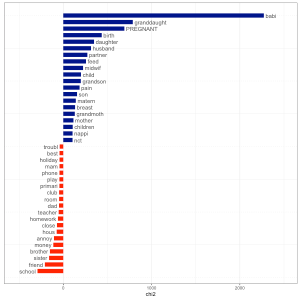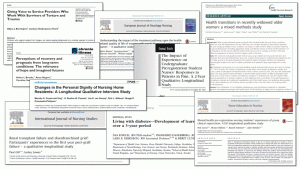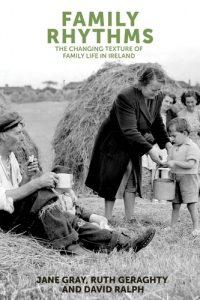Today’s post is written by Dr Emma Davidson, and her colleagues Justin Chun-ting Ho and Professor Lynn Jamieson in Sociology at the University of Edinburgh. The blog considers the potentials and pitfalls of using R, a tool for computational text analysis, to get an overview of a large volume of qualitative data and to identify areas of salience …
Tag: Qualitative longitudinal research
Mar 06
Post#26: Dr Susie Weller: Collaborating with original research teams: Some reflections on good secondary analytic practice
In this blog, Dr Susie Weller, Senior Research Fellow at the ESRC National Centre for Research Methods and the MRC Lifecourse Epidemiology Unit, University of Southampton reflects on her experiences of thinking about good practice in qualitative secondary analysis. Susie draws on a recent ESRC National Centre for Research Methods study – Working across qualitative …
Feb 26
Guest post#24: Dr Åsa Audulv: Be transparent (and proud) – How can we better describe the practice of qualitative longitudinal analysis?
Dr Åsa Audulv, lecturer in the Department of Nursing Science, Mid Sweden University, Sweden and School of Occupational Therapy, Dalhousie University, Canada has written today’s guest post. Åsa has conducted qualitative longitudinal research (QLR) into self-management among people with long-term health conditions. With colleagues she is currently working on a literature review of QLR methods …
Feb 11
Guest blog #23: Prof Jane Gray: Working backwards and forwards across the data: Bringing together qualitative longitudinal datasets with different temporal gazes
In our latest guest post, Jane Gray, Professor of Sociology at Maynooth University, Ireland, focuses on reconciling different temporalities when bringing together a data set comprising retrospective life story narratives with a set of qualitative longitudinal interviews from a prospective panel study. Jane has expertise in families, households and social change, as well as qualitative …
Feb 11
Guest post#22: Dr Emily Stapley: Analysing young people’s experiences of coping with problems, difficult situations and feelings: An evolving approach to analysing qualitative longitudinal evaluation data
Dr Emily Stapley contributes today’s guest post. Emily is a Qualitative Research Fellow in the Evidence Based Practice Unit (EBPU) at the Anna Freud National Centre for Children and Families and UCL. EBPU is a child and youth mental health research and innovation unit. The blog focuses on some of the ways in which Emily …
Jan 16
Guest post#20: Dr Irmak Karademir Hazır: Tracing changes in notions and practices of child feeding: a trajectory approach to qualitative longitudinal research
Today’s guest post is written by Dr Irmak Karademir Hazır, Senior Lecturer in Sociology at the Department of Social Sciences, Oxford Brookes University, UK. In her post, Irmak outlines the trajectory approach she is currently using in her ethnographic and longitudinal research (BA/Leverhulme SRG) looking at the practices of foodwork (eating, cooking and feeding) in families …
Oct 16
Guest post #18: Dr Joanna Fadyl: Seeing the changes that matter: QLR focused on recovery and adaptation
Dr Joanna Fadyl is a Senior Lecturer and Deputy Director of the Centre for Person Centred Research at Auckland University of Technology in New Zealand. Her expertise is in rehabilitation and disability. Here, she reflects on the experiences of the group of researchers who worked on the ‘TBI experiences study’ – Qualitative Longitudinal Research (QLR) …
Apr 16
Guest Post #15: Dr Ruth Patrick: Analytic strategies for working within and across cases in qualitative longitudinal research
Dr Ruth Patrick, Social Policy Researcher in the School of Law and Social Justice, University of Liverpool, contributes today’s guest post. Ruth’s research illustrates the ways in which qualitative longitudinal research can help us to understand popular and political narratives around poverty, welfare reform and austerity and lived experiences for those directly affected by recent …
Dec 04
Guest Post #13: Prof Bren Neale: Research Data as Documents of Life
Bren Neale is Emeritus Professor of Life course and Family Research (University of Leeds, School of Sociology and Social Policy, UK) and a fellow of the Academy of Social Sciences (elected in 2010). Bren is a leading expert in Qualitative Longitudinal (QL) research methodology and provides training for new and established researchers throughout the UK …
- 1
- 2









